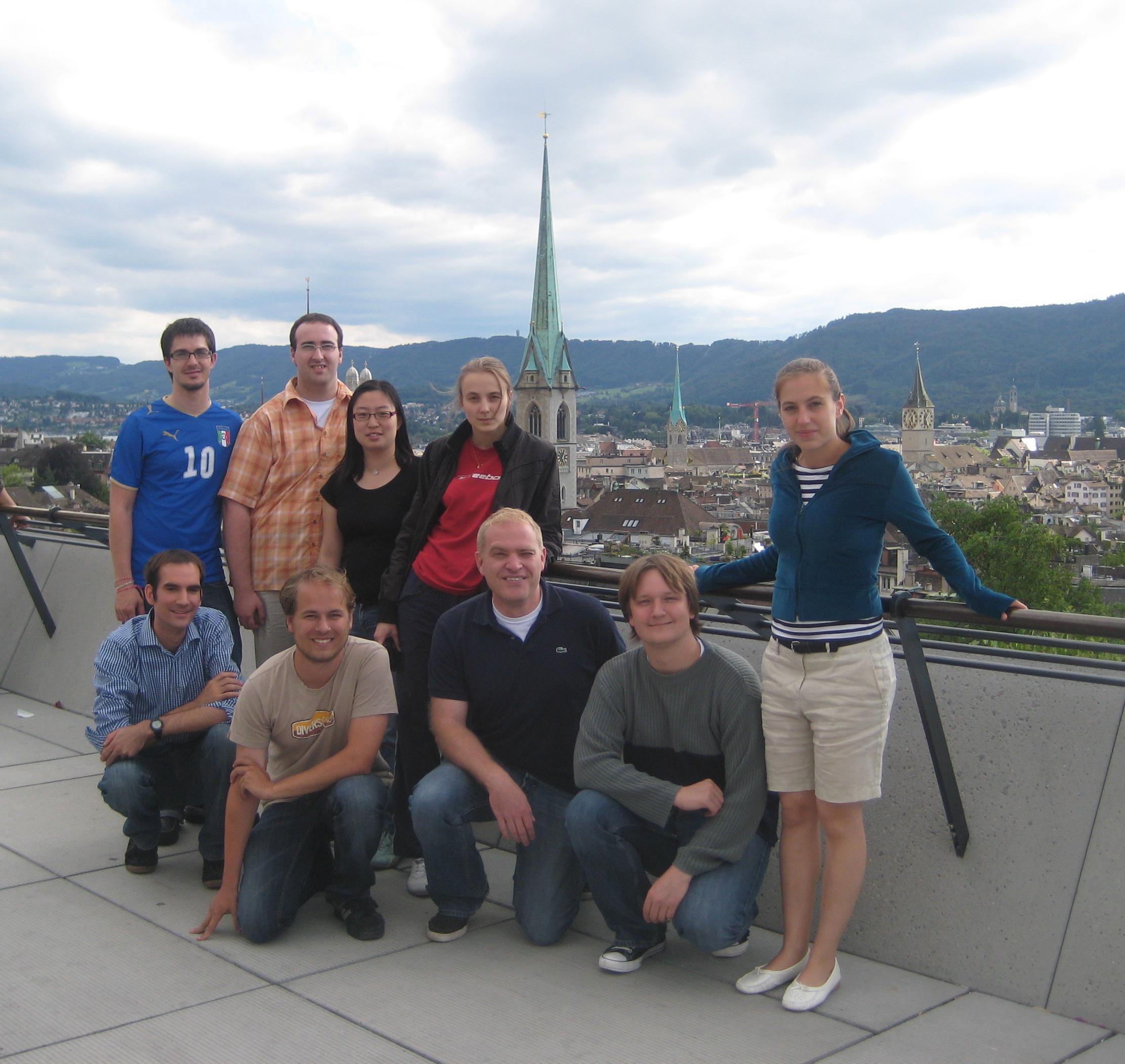Team:ETH Zurich
From 2008.igem.org
m (→The Team) |
m (→The Team) |
||
| Line 25: | Line 25: | ||
</div> | </div> | ||
== The Team == | == The Team == | ||
| + | [[Image:Team_eth.JPG|left|thumb|100px|Team ETH]] | ||
<strong>Undergraduate Students</strong><br> | <strong>Undergraduate Students</strong><br> | ||
[https://2008.igem.org/User:juliasl Julia Slipantschuk],[https://2008.igem.org/User:sgiese Sebastian Giese],[https://2008.igem.org/User:Nico Nico Hensgens],[https://2008.igem.org/User:ruby Rebecca Herbst],[https://2008.igem.org/User:User:rbyun Reine Byun],[https://2008.igem.org/User:Georg Georg Ofenbeck] | [https://2008.igem.org/User:juliasl Julia Slipantschuk],[https://2008.igem.org/User:sgiese Sebastian Giese],[https://2008.igem.org/User:Nico Nico Hensgens],[https://2008.igem.org/User:ruby Rebecca Herbst],[https://2008.igem.org/User:User:rbyun Reine Byun],[https://2008.igem.org/User:Georg Georg Ofenbeck] | ||
Revision as of 23:39, 26 October 2008
|
Project Abstract'Random walks towards the minimal genome' "This year's ETH Zurich project tackles a fundamental problem of synthetic biology: the minimal genome.
Exploring the minimal set of genes that is able to support life is not only a question of significant biological interest, it is also a crucial step towards the implementation of orthogonal functionalities into a rationally designed complex biological system. An organism carrying a minimal genome would provide a simple chassis for biological engineering.
We attempted to exploit the power of accelerated evolution for a genome reduction strategy. Our approach is based on an iterative cycle of genome reduction and strain selection.
We propose a novel method to randomly delete chromosomal DNA fragments by controlled expression of restriction enzymes and ligases in vivo. Furthermore we develop a chemostat-based selective condition to select for cells with a smaller genome size by constraining nucleotide availability. Computationally, we analyze the genome for the optimal restriction enzyme, and perform flux balance analysis on a genome scale model to predict growth of reduced genome strains. Finally, we simulate the restriction enzyme expression and the progression of selection." The TeamUndergraduate Students Site Map
|
 "
"
